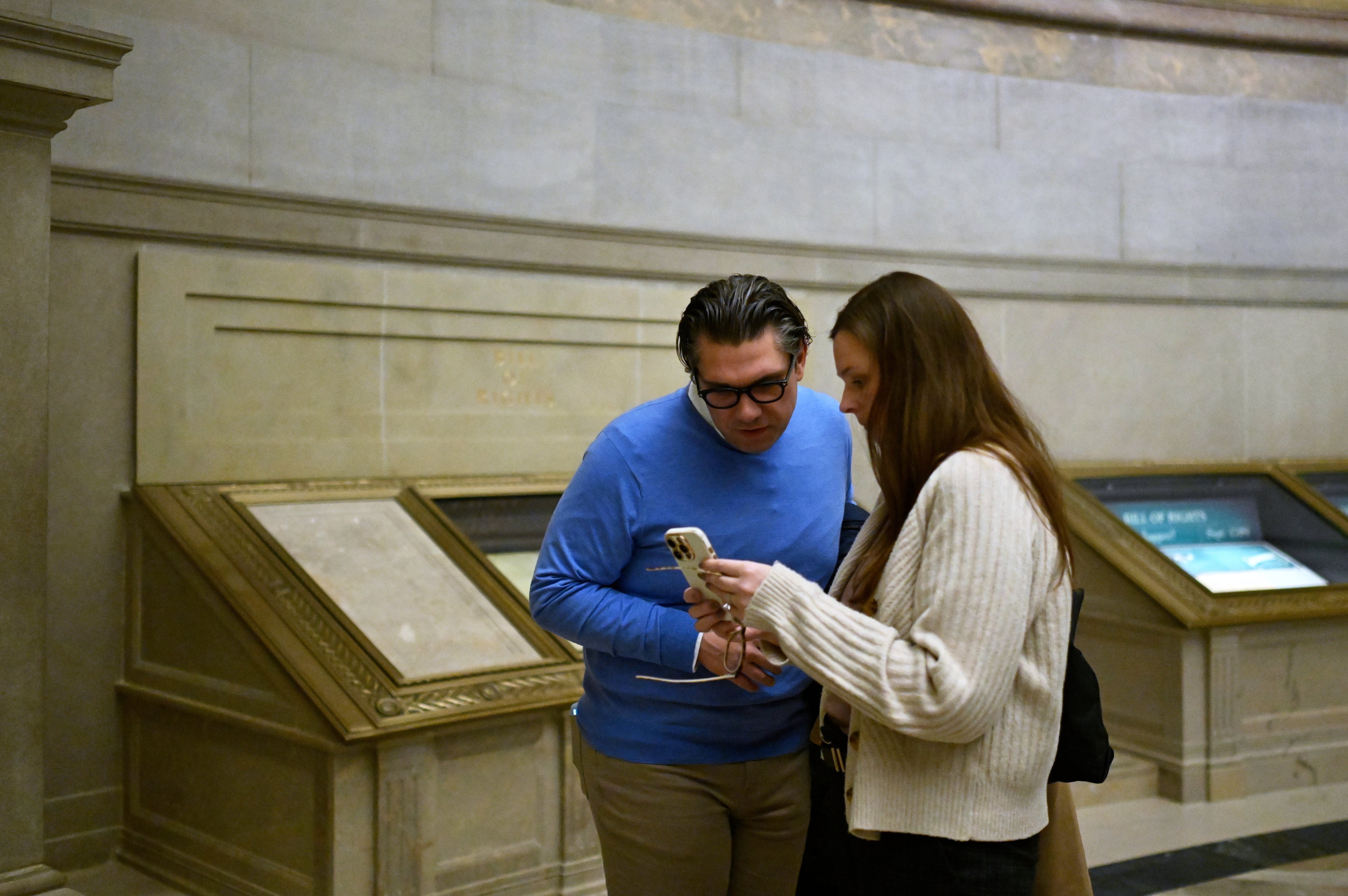After delays, Charleston museum focused on Black experience to open

This week, Atlanta Journal-Constitution columnist Nedra Rhone and her 12-year-old daughter Layla are on the road, traveling to five Black history museums in five days.
When Rhone was growing up in Chicago, her parents took her on similar summer trips. And, just like them, she has a mission — to educate her daughter about significant moments in American history and culture.
Another day in Charleston
On our second day in this coastal city, we visited the International African American Museum.
The idea for the museum was first proposed in 2000 during then-Charleston Mayor Joseph P. Riley Jr.’s State of the City address.
Next week, after almost $100 million and many delays later, Riley’s goal of opening an inspiring and captivating museum dedicated to the African American experience finally will be realized. IAAM is detailed, thoughtful and beautiful.

The museum is located on Gadsden’s Wharf, where 45% of enslaved Africans arrived in the country.
The galleries highlight the full range of the African American experience, including the unique Gullah Geechee culture and a timeline of Black American life called American Journeys. A genealogy center connects visitors to resources and later will expand to offer more customized assistance.
Even the landscaping incorporates stories, with the Ancestors Memorial Garden and art installations. A reflecting pool was inspired by a 1787 diagram of a slave ship. At the pool’s bottom is a relief sculpture of men, women and children crammed together. When we arrived in the afternoon, the design was submerged in water. When we left in the evening, the water had receded like the tide, leaving small pools of water behind.
Layla was impressed with the features that allowed her to engage with history in a different way than reading.
While touring the space with Malika N. Pryor, IAAM’s chief learning and education officer, I asked how the museum handles Reconstruction, an era that some historians and educators believe is poorly taught in schools.
Pryor showed me the relevant panels in the American Journey timeline. “Reconstruction was a chance to save our soul as a country,” she said. But instead, she said, the South created a mythology about slavery that some Americans are still working hard to protect.
Also of interest:
Before our tour of IAAM, we walked to Emanuel AME Church, where passersby leave flowers in memory of the nine Black people who were killed in 2015 by a 21-year-old white supremacist. The church dates back to the 19th century when more than 4,000 enslaved and free Black people started it with Rev. Morris Brown as their leader. After the 2015 slaughter and the resiliency shown by the congregation, images of the church’s steeple were shared widely on social media. The steeple has become a symbol of hope.

We also visited Tiny Tassel, a business that sells colorful clothing, jewelry and accessories. Mimi Striplin and her mom Keiko opened the shop a year into the pandemic. They have a range of items, but the standout is their signature tassels adorning bracelets, earrings and necklaces.
If you go:

Follow our journey at https://www.ajc.com/opinion/real-life-blog/ and https://www.instagram.com/ajcnews/.
About this series

In June, Atlanta Journal-Constitution columnist Nedra Rhone and her 12-year-old daughter took a five-day road trip to Black history museums in South Carolina, Georgia and Alabama.
With two new institutions opening in the region this summer, Rhone saw an opportunity to examine the ways that history is being preserved in the South. She considers the museums more important than ever now, as lawmakers around the nation are limiting how race is discussed in schools.
Rhone reflects more deeply on what she and her daughter learned on their journey in this three-part series.
THURSDAY: For many Black Americans, Charleston was our ancestors’ Ellis Island
SATURDAY: A preteen’s take on history: America moving forward, slowly
SUNDAY: Museum tells story of Africatown, its people and the crime that started it all



